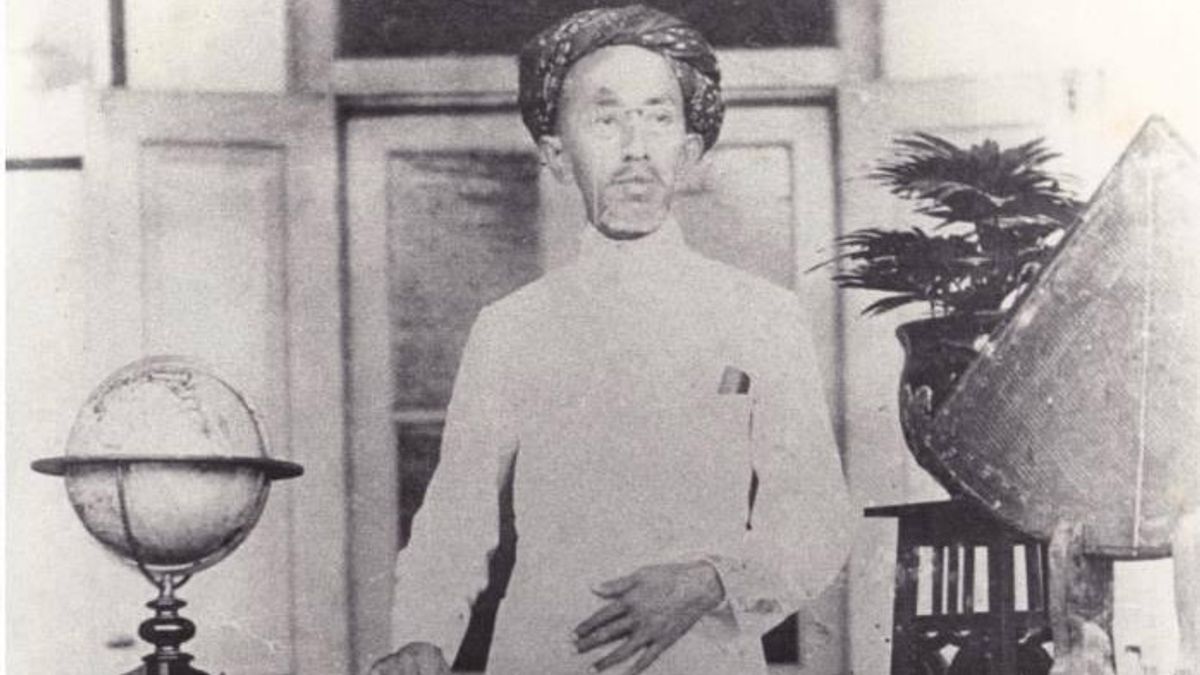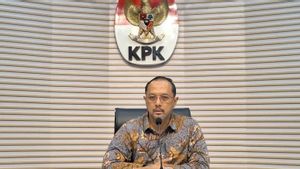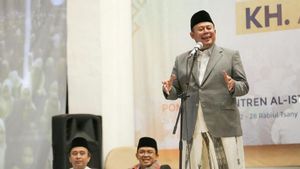JAKARTA - Kiai Haji Ahmad Dahlan has a big contribution to the country and the nation. Through Muhammadiyah, Ahmad Dahlan promoted Islamic reform, especially in education. In his hands, lasting religious education is taught in schools. Why is religious education in schools so important?
The figure with the nickname The Enlightener is able to bring agana education side by side with other general knowledge. Most importantly, religious education is to be the savior of the native people free from the shackles of ignorance.
During his lifetime, Ahmad Dahlan saw education as a means of strategic change. Education is the main effort in educating the nation's children, especially Muslims. In his struggle, Ahmad Dahlan carried out religious education reforms by modernizing the education system.
For this reason, Ahmad Dahlan has his respective criticisms related to the ancient Islamic boarding school education system as well as the modern education system in the style of the Dutch colonialists. Ahmad Dahlan rejects Islamic boarding school education which is solely a matter of religious education.
Ahmad Dahlan realized that without modern science, there would be no meaningful changes for the nation. Even more worrying, Ahmad Dahlan did not want education to give birth to conservative and anti-modernization scholars. As a result, the nation's future generations are developing slowly. Ahmad Dahlan's criticism is in line with that expressed by the Father of National Education, Ki Hajar Dewantara, who even prefers to use the term dormitory rather than mondok.

"Now the pondok is used solely for religious education: but in the days when the pondok was called a dormitory, which was given in teachers' houses which were dormitories was not only religious teaching, but also knowledge sharing. All knowledge gained by teachers with studies, whether religion, geography, astronomy, law science, language, arts, and war science is passed on to students, "wrote Ki Hajar Dewantara in his writing in Wasita magazine entitled Boarding and Dormitory System, That is the National System. (1928).
Likewise with modern education in the style of the colonial government. Dutch education, said Ahmad Dahlan, tends to be anti-religious. This understanding makes Islam seem to be regressing. Islam is seen as not guaranteeing progress, maintaining stupidity and ignorance.
Even so, Ahmad Dahlan also acknowledged that there are many benefits that can be taken from western education. Because of that, Ahmad Dahlan updated the Islamic boarding school system (religious education) with a modern education system. The advantages of each education are combined to keep up with the will of the times.
"In implementing this education, Muhammadiyah tries to advance and renew education, teaching and culture, as well as expand knowledge according to Islamic guidance. Muhammadiyah arranges an education system by integrating Islamic religious education with general education, at each type and level of school, "said Sutrisno Kutoyo in the book Kiai Haji Ahmad Dahlan and Persyarikatan Muhammadiyah (1998).
The importance of religious educationAs an effort to realize reform, Ahmad Dahlan gave an example by directly intervening in building schools. He raised funds, provided land to building materials. In the same breath, Ahmad Dahlan was directly involved in guiding his students, combining traditional education (pondok pesantren) and Dutch education.
“Kiai Haji Ahmad Dahlan is a forward-looking educator and organizer. As an example, from the beginning Kiai Haji Ahmad Dahlan tried to combine the good elements of the two existing systems. In 1911, for example, when he started establishing a Muhammadiyah school, he did not separate religious studies and general subjects. This is because Muhammadiyah realizes that Islam commands the ummah to seek all useful knowledge, "wrote M. Nasruddin Anshoriy Ch in the book Matahari Renewal: KH Ahmad Dahlan's Track Record (2010).
In its form, Muhammadiyah schools no longer separate religion and science. Both are taught as needed. Because, basically the separation of lessons in religious and general sciences was the result of Dutch colonialism. The colonial government at that time became the actor who separated the affairs of the world and the hereafter. Ahmad Dahlan is of the view that this is not the correct Islamic lesson.

Muhammadiyah Central Board 1937-1943 (Source: Wikimedia Commons)
Slowly Muhammadiyah grew rapidly. In the field of education, in 1925, Muhammadiyah had a teacher's school in Yogyakarta. The rest, there are 14 madrasas and 32 five-year elementary schools.
In total, Muhammadiyah has 119 teachers and 4 thousand students. Even in terms of perpetuating the existence of worship. Muhammadiyah in 1935 maintained and established 834 mosques and langgar, 31 public libraries, up to 1,774 Islamic educational institutions.
"Among Muhammadiyah schools that are oldest and have a major contribution in the field of education are: Kweekschool Muhammadiyah Yogyakarta School, Mu'allimin Muhammadiyah Solo and Jakarta, Muallimin Muhammadiyah Yogyakarta, Zu'ama / Zaimat in Yogyakarta, Tablighschool in Yogyakarta, Kulliyah Muballgih / Muballigat Padang Panjang, to HIK Muhammadiyah Yogyakarta, "added Samsul Bahri in the book Social History of Islamic Education (2020).
Muhammadiyah's model of renewal of Islamic education is increasingly gaining a place in society. Moreover, when Indonesia was free from the shackles of Dutch colonialism. Muhammadiyah stepped on the gas by establishing many schools and madrasas. In 1957, the number of schools owned by Muhammadiyah increased rapidly compared to 1925. Muhammadiyah has 412 madrasah ibtidaiyah, 40 madrasah tsanawiyah, 82 madrasah Diniyah (Alawiyah), 73 Madrasah Mualimin, and 75 teacher education madrasas.
"Things that need to be learned by the human and education stakeholders are the spirit of service and renewal of KH. Ahmad Dahlan, not the format. In many ways, the Government of Indonesia adopted the Muhammadiyah education system in the national education system. The Ministry of Religious Affairs established madrasas in which Islamic studies and modern science are taught. In the national education system, religious education is a compulsory subject that is taught at all levels and types of education, "concluded Abdul Mu'ti in the book Progressing Islamic Cosmopolitanism (2016).
MEMORY OtherThe English, Chinese, Japanese, Arabic, and French versions are automatically generated by the AI. So there may still be inaccuracies in translating, please always see Indonesian as our main language. (system supported by DigitalSiber.id)










